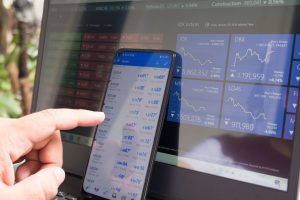Forex, or foreign exchange, is one of the largest financial markets in the world. It involves trading currencies from different countries, with the aim of making a profit from the fluctuations in their exchange rates. To participate in this market, traders need a forex broker to execute their trades. If you’re interested in starting your own forex brokerage, here’s what you need to know.
1. Decide on your business model
The first step in creating a forex broker is to decide on your business model. There are two main types of forex brokers: market makers and ECN/STP brokers.
Market makers are brokers that create their own market by taking the other side of their clients’ trades. They make money by charging a spread, which is the difference between the bid and ask prices. Market makers often provide their clients with fixed spreads, which can be helpful for novice traders.
ECN/STP brokers, on the other hand, connect their clients directly to the interbank market, where they can trade with other market participants. These brokers charge a commission instead of a spread, and offer variable spreads that can be very low during times of high liquidity.
2. Obtain the necessary licenses
Before you can start operating as a forex broker, you’ll need to obtain the necessary licenses and registrations. The specific requirements will vary depending on the jurisdiction you operate in, but most countries have some sort of regulatory body that oversees forex brokers.
In the United States, for example, forex brokers must be registered with the National Futures Association (NFA) and the Commodity Futures Trading Commission (CFTC). In Europe, brokers must be licensed by the Financial Conduct Authority (FCA) in the UK or the Cyprus Securities and Exchange Commission (CySEC) in Cyprus.
3. Choose a trading platform
Once you have your licenses in place, you’ll need to choose a trading platform to offer your clients. There are several popular platforms available, including MetaTrader 4 and 5, cTrader, and NinjaTrader.
The platform you choose will depend on your business model and the needs of your clients. MetaTrader 4 is the most widely used platform in the forex industry, but cTrader is gaining popularity among ECN/STP brokers due to its advanced order routing capabilities.
4. Set up your trading infrastructure
To operate as a forex broker, you’ll need to set up your trading infrastructure. This includes servers, connectivity, and data feeds. You’ll also need to choose a liquidity provider, which is a company that provides the pricing for the currency pairs you offer.
There are several options for liquidity providers, including banks, other brokers, and aggregators. It’s important to choose a provider that offers competitive pricing and reliable execution, as this will have a direct impact on the profitability of your brokerage.
5. Market your brokerage
Once you have your infrastructure in place, you’ll need to market your brokerage to attract clients. This can include advertising on forex websites and forums, offering bonuses and promotions, and partnering with other companies in the industry.
It’s important to have a clear value proposition that sets your brokerage apart from your competitors. This could include offering low spreads, fast execution, or personalized customer service.
6. Manage your risk
As a forex broker, you’ll be exposed to a significant amount of risk. You’ll need to manage this risk by implementing risk management policies and procedures, such as setting trading limits for your clients and monitoring your exposure to different currency pairs.
You’ll also need to have a robust back-office system in place to manage your clients’ accounts and ensure that their trades are executed accurately.
In summary, creating a forex broker involves a significant amount of planning and preparation. You’ll need to decide on your business model, obtain the necessary licenses, choose a trading platform and liquidity provider, set up your trading infrastructure, market your brokerage, and manage your risk. With the right strategy and execution, however, a forex brokerage can be a lucrative business opportunity.





